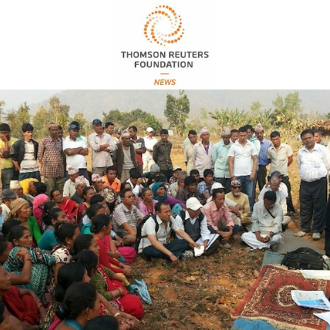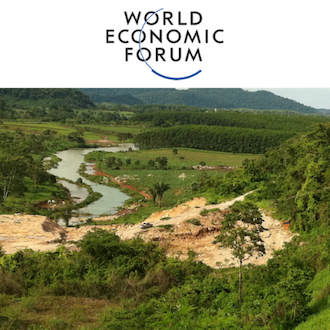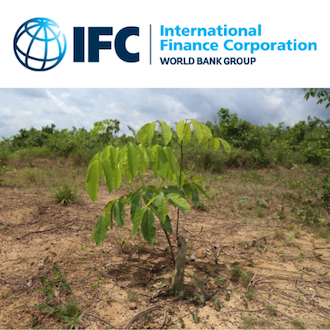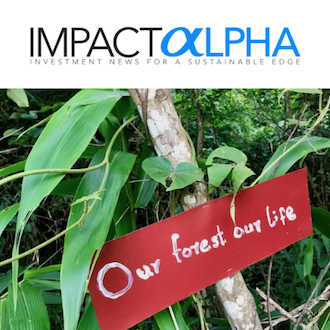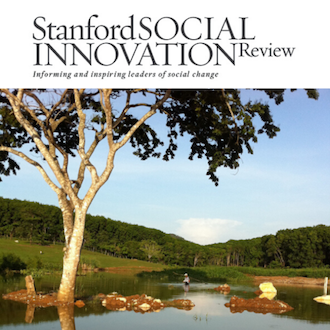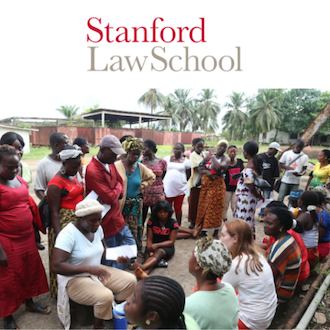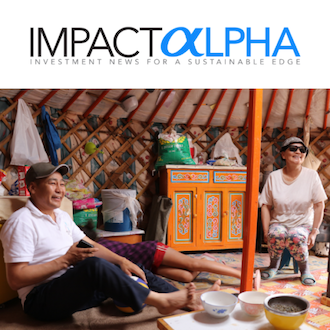Impact Investing
-
Overview
What tools do people around the world have to raise grievances if an impact investment in their community causes harm to their livelihoods, negative gender impacts, or environmental abuse? How would an impact investor know about the harm, prevent further harm, or remedy an abuse? Accountability Counsel is working to address these questions with concrete tools.
Read our Guidance for Investors: Managing Environmental & Social Risks with Effective Due Diligence & Grievance Redress Mechanisms (2024)
The Case for Accountability in Impact Investing
While development finance institutions like the World Bank have had social and environmental safeguard policies and community-driven accountability offices for decades, many impact investors – financing similar projects and even co-financing the same projects – are still in the process of developing the social and environmental standards that govern their investments.
Accountability is crucial to support intentionality in impact investing; that is to say, to do no harm in the pursuit of doing good. In this sense, accountability is necessary for risk management, by empowering investors to ascertain, prevent, mitigate, and respond to unintended harm that may compromise net-positive impact and result in reputationally damaging accusations of impact-washing. On a human level, accountability is essential to pursue positive environmental and social gains while also valuing and respecting the rights of communities impacted by investments.
One critical tool for impact investors to account for actual impact is a grievance redress mechanism (GRM) because it functions to facilitate direct feedback from investment-impacted communities who may be experiencing harm unknown to investors far removed from projects. GRMs help impact investors respond to and follow up on allegations of harm collaboratively with communities, using available leverage to halt and remediate environmental and social impacts. Engaging with communities in this way can help investors improve environmental and social due diligence to benefit sustainability and resilient impact in future investments.
Our Cause for Accountability in Impact Investing
As the impact investing industry evolves, accountability must be a central tenet defining the industry and guiding the environmental and social responsibilities of impact investments. We are working to ensure that independent accountability offices exist to ensure access to remedy for unintended impacts in communities in areas where investors operate, and to help investors who are seeking to use their resources for the benefit of people and the planet achieve their intended goals.
Ultimately, we imagine a world where there is an independent forum, serving networks of impact investors, where communities can file a grievance about harm resulting from an impact investment, have their voice heard, and their grievance addressed. Investors and the public could use information from this process to prevent harm, make better decisions, and ultimately improve the outcomes of investment for people and the planet. For larger investors, they require immediate ways to hear grievances from communities through accountability offices that are independent, fair, transparent, accessible and effective.
To date, our advocacy has resulted in accountability as a benchmark for good practice across numerous impact measurement, monitoring, and reporting standards governing the field. We invite you to learn more about our strategy to influence impact investing and ESG standard and advocate for new mechanisms in the tabs connected to this page.
“From an investor perspective, the risk is that their money doesn’t meet its mark. For investments seeking to address issues like climate change, where every dollar counts, communities living near or working at investment sites are going to be the first to know if things go off course, and accountability mechanisms offer a channel for investors to hear from communities and address unintended impacts.” – Margaux Day, Accountability Counsel’s Executive Director
Related Media
-
-
Our Advocacy
Identifying the Gap: Community Feedback for Greater Net Impact
Accountability Counsel’s experience supporting communities harmed by internationally financed projects that are also considered impact investments demonstrates that there is just as much need for an accountability system for renewable energy projects as there is for coal fired power plants. Take, for example, a biomass project in Liberia that sent family farmers into poverty, and contaminated water supplies amid sexual abuse and labor rights violations. Or another project in Mexico, where construction of a small hydroelectric facility began through illegal land acquisition, and endangered both a water supply and the safety of an adjacent dam curtain before the project was stopped. In both cases, investors genuinely thought they were benefiting their host communities. And yet their failure to take risks of social and environmental harm seriously ultimately led to catastrophic financial, human, and environmental outcomes. It is only because the now-defunct U.S. Overseas Private Investment Corporation (OPIC) financed these projects that communities were able to use their internal accountability office to raise their grievances.

A creek in Oaxaca, Mexico, that faced destruction from a ‘mini-hydro’ project. The OPIC OA
dispute resolution process allowed the parties to stop the project from causing further
harm and more needless investment.Impact investments are no less susceptible to unintended adverse impacts outside of the renewable energy context. A prime example is that of a recent conservation project in Myanmar, financed in part by the United Nations Development Programme (UNDP), which sought to protect land from development but instead resulted in social and economic upheaval. Indigenous Karen communities expressed serious concerns with the top-down development approach, as opposed to a design process developed through the free, prior, and informed consent of Indigenous Peoples. Among many unanticipated impacts, the design of the conservation project disrupted the livelihoods of Indigenous communities, jeopardized existing ceasefire agreements in an area recovering from civil war, and violated the right of return for people who were forced from their land during the war.
While addressing negative impacts has not been on the radar for most impact investors, traditional DFIs––such as OPIC or the UNDP––have routinely applied policy and accountability frameworks to manage their social and environmental risks and to remedy harm that results from the projects they finance. When these institutions invest in a project, they bring environmental and human rights standards and community-driven accountability offices that local communities can use to raise grievances and have them addressed. We believe that a fit-for-purpose community feedback mechanism would provide impact investors with the ability to connect with those who are impacted by their investments and provide redress and solutions when harm occurs.
If traditional development institutions are not involved in a project financed by an impact investor, chances are that communities will have no direct course to raise concerns to the investor or receive remedy for harm. Likewise, most impact investors lack the mechanisms to receive information directly from impacted communities, prevent unintended environmental and social harm, or learn from missteps to improve overall outcomes and maximize net impact.
The Opportunity to Build Stronger Systems
There are three reasons why this is a good time to develop the movement for an accountability and learning system for impact investment. First, we believe the individuals behind impact investments––if given the chance––would want systems in place to ensure that any policies they have adopted to protect people and the environment are complied with, to better understand and evaluate their impact, and to have a way to address social or environmental harms associated with their investment when they do occur.
Second, we have the required evidence of why accountability frameworks are needed (see, e.g., Mexico, Liberia, and Myanmar) and the experience to design and help implement accountability offices and community feedback mechanisms that are likely to work effectively and efficiently for impact investments.
When failure happens—as it can, even when an investor does engage in earnest due diligence—then the people harmed need a forum to raise grievances. Thankfully, accountability offices, such as the Compliance Advisor Ombudsman (CAO), exist for just this purpose. Reporting to the president or board of institutional investors such as the International Finance Corporation (IFC) and dozens of others, these offices receive and evaluate complaints about social and environmental harm. They provide compliance reviews to determine compliance with due diligence and project monitoring rules and issue public findings, and also dispute resolution services, sometimes hiring mediators to address conflicts at the local level.
If run effectively, when compared with courts, accountability offices and community feedback mechanisms can offer a cheaper, faster, and even fairer forum for all parties to address disputes. They also serve institutional investors by providing valuable third-party input on governance—for example, by reviewing an investor’s policies for soundness and its activities for compliance—and by assessing impact by weighing an investor’s positive impact against any harm caused.
Third, the potential for positive impact if an accountability framework for impact investing is implemented is staggering. The converse is true of the status quo. If impact investing scales further without governance and accountability structures in place to prevent abuse and address harm, the consequences to local communities are dire. They will be certain to include the land grabs, contamination of water, labor rights abuses, and displacement of indigenous people that are typical of investments where there is weak rule of law and use of land and labor.
Benefits of creating a robust accountability framework with a community feedback mechanism, if achieved, could spread beyond impact investing and could extend to all of global finance, including back to development finance, where existing frameworks could be improved based on leadership from the impact investing community.
Seeding the Movement for Accountability in Impact Investing
Drawing on our years of work in partnership with communities around the world harmed by international investment, and our policy work advocating for creation of accountability frameworks, we are bringing impact investors a vision of what a system could look like in policy and practice. We are seeing natural leaders of this work emerge in the impact investing community to make this vision a reality.
We launched this conversation about the golden opportunity in impact investing in our 2016 blog in the Stanford Social Innovation Review (SSIR). We worked with Stanford Law School in 2018 on a Law and Policy Lab focused on accountability for unintended consequences of impact investing and how impact investors can develop community feedback mechanisms to address these consequences in a proactive and community-oriented manner.

Mali Ole Kaunga, Natalie Bridgeman Fields, and Gabino Vicente spoke about the
need for accountability in impact investing at Confluence Philanthropy.Building on our work at Stanford, in December 2018, Accountability Counsel participated in an in-person consultation on the International Finance Corporation’s (IFC) draft Investing for Impact: Operating Principles for Impact Management (the Principles). The Principles are a set of voluntary guidelines for impact investors, touching on impact strategy, assessment, and monitoring. Accountability Counsel and several partners made a joint submission to the IFC, advocating for revisions to the Principles that would commit signatory investors to implement a systematic approach to avoid and remedy negative impacts, consult and receive grievances from local communities impacted by their investments, and adhere to high transparency standards. The IFC published the final version of the Principles in March 2019.
Accountability Counsel was able to explore what incorporating community feedback would look like in practice during our Deep Dive session on “Community Feedback for Net Impact” at the 2019 Sorenson Winter Innovation Summit and our session “Case for Accountability: Considering Potential Harm for Smarter Investing & Stronger Impact” at the 2019 Confluence Philanthropy Annual Gathering. In March 2019, Accountability Counsel, along with researcher and advocate Joanna Levitt Cea, gave a presentation as part of a series of webinars hosted by Transform Finance. The presentation demonstrated how impact investors can learn from the experiences of development finance institutions (DFIs) and use community feedback to identify environmental or social risks and redress negative impacts on local communities.
Advocating for Good Governance of Impact Measurement, Management and Reporting Standards
Developments over the past couple of years have advanced the conversation around baseline expectations for governance underpinning impact goals and performance. Since 2019, Accountability Counsel has advocated successfully for requirements within various impact measurement, management and reporting standards regimes to include reporting on the use, availability, and outcomes of grievance redress processes. Standards regimes are now increasingly recognizing that effective grievance mechanisms are essential to ascertain and address unintended adverse impacts to community stakeholders, and to understand net impact. Our advocacy resulted in expectations for grievance mechanisms under the following regimes:
- UNDP SDG Impact Standards for Private Equity Funds, Enterprises, and Bond Issuers, which in turn have influenced the OECD-UNDP Impact Standards for Financing Sustainable Development
- Global Reporting Initiative (GRI) Universal Standards and Sectoral Guidance, which now require qualitative reporting on the availability, use, and effectiveness of grievance redress mechanisms as according to the UN Guiding Principles on Business and Human Rights
- The European Parliament Resolution on Corporate Due Diligence and Corporate Accountability, which has an Annex that instructs on the need for qualitative grievance redress reporting as a component of human rights due diligence
Community engagement and feedback is also reflected in the World Economic Forum/International Business Council Stakeholder Capitalism Metrics, the Global Impact Investing Network (GIIN) Impact Reporting and Investment Standards (IRIS+), as well as the IFC Operating Principles for Impact Management, which reference the UN Guiding Principles — including those requiring effective grievance mechanisms — as a good industry practice. Our team is continuing to advocate for detailed requirements for grievance mechanisms under those standards and principles, as well as within emerging human rights and environmental due diligence legislations and ESG disclosure rules.
Advising on Improving Effective Grievance Redress Mechanisms for Managing Impact
Accountability Counsel is advocating directly to impact investors, especially those who seek partnership with Development Finance Institutions on sustainable development projects, such as certain Green Climate Fund (GCF) Accredited Entities. As a condition to accreditation, GCF Accredited Entities must develop institutional level grievance redress mechanisms aligned with the effectiveness criteria of the UN Guiding Principles on Business and Human Rights. This year, the GCF Board began considering the first applications for re-accreditation, and Accountability Counsel relayed assessments and recommendations concerning the accessibility and transparency of applicants’ respective grievance redress mechanisms to ensure that they are fit to address potentially adverse impacts of green infrastructure investments.
Accountability Counsel also is in conversation with auditing firms that verify reporting on environmental, social, and human rights impacts. We urge auditors to fully assess the availability, use, and effectiveness of institutional grievance mechanisms as one way to ground-truth reported impacts.
Please contact us to learn more.
-
Documents
Accountability Requirements and Obligations for Impact Investors
Numerous laws, regulations, standards, and guidelines require investors to have and report on the availability, use, and outcomes of accountability mechanism processes. Often referred to as Grievance Redress Mechanisms (GRMs) in this context, these accountability channels provide greater transparency of actual impact and help hold investors accountable to their aims. This matters significantly to local communities defending their rights and environment from negative impacts of investments. Local human rights and environmental defenders deserve a fair and effective channel to raise issues to investors directly, and in turn investors are responsible for redressing issues raised.
The following laws, regulations, voluntary standards, and guidelines are intended to provide a landscape of practice for accountable impact investing and reporting. It is an extensive but non-exhaustive list demonstrating the wide expectation that investors redress negative environmental and social impact of their investments as a way of measuring and managing net impact.
LAWS & REGULATIONS
European Union, Corporate Sustainability Due Diligence Directive (2024)
The CSDDD obligates large companies to prevent and remediate human rights and environmental harms associated with their business activities. Under the law, financial sector actors are expected to consider adverse impacts and to use available leverage to ensure they are not complicit in supporting harm. This entails ensuring that the companies they support are equipped with complaints procedures designed to remediate actual adverse impacts and facilitate meaningful engagement with stakeholders.
Accountability Counsel’s Direct Written Advocacy
2021 Letter to European Commission
2022 Letter to European CommissionEuropean Union, Corporate Sustainability Reporting Directive (2022)
The CSRD mandates comprehensive sustainability reporting for large EU companies and those listed on regulated markets. Under the regulation, companies must (a) establish processes to hear about environmental, social, and human rights impacts, (b) proactively inform community stakeholders about those processes, and (c) track and disclose efforts to remedy material adverse impacts. Large banks, insurance undertakings, and publicly-listed companies must report according to the European Sustainability Reporting Standards (discussed below), which include requirements to disclose processes for receiving grievances and providing remedy for adverse impacts to communities impacted by their operations.
European Union, Sustainable Finance Disclosure Regulation (2019)
This transparency framework of the SFDR is intended to help all financial market participants understand the environmental and social performance of their investments, including principal adverse impacts. Indicators for assessing adverse sustainability risks and impacts include whether companies have grievance mechanisms to remediate alleged rights violations.
France, Corporate Duty of Vigilance Law (effective 2017)
The law requires large companies in France to manage the human rights and environmental risks within their operations and supply chains by establishing, implementing and publishing vigilance plans that correspond with the UN Guiding Principles on Business and Human Rights (UNGPs). Vigilance plans must detail steps to mitigate and prevent adverse impacts, which as identified by Principle 38 of the UNGPs includes effective grievance mechanisms accessible to community stakeholders.
Germany, Act on Corporate Due Diligence in Supply Chains (effective 2023)
With the aim of improving the global human rights across supply chains, the law requires enterprises of a certain size, including financial institutions that supply companies in the real economy, to establish complaints procedures to prevent, stop, and remediate human rights and environmental violations discovered in their supply chains.
Netherlands, Bill for Responsible and Sustainable International Business Conduct (not yet in force)
The proposed law would require regulated entities including financial undertakings to, among other things, ensure that a well-functioning remediation mechanism is in place or that they cooperate with an existing remediation mechanism to enable to contribute to remedy for adverse human rights or environmental impacts directly linked to a business relationship’s activities.
Norway, Act relating to enterprises’ transparency and work on fundamental human rights and decent working conditions (effective 2022)
The Transparency Act requires enterprises of a certain size, including banks, credit companies, and financing companies, to (a) identify potential adverse impacts to fundamental human rights and decent work conditions they have either caused or contributed toward, (b) implement measures to cease, prevent, or mitigate those adverse impacts, and (c) stay in communication with rightholders about how the the adverse impacts are addressed, providing for or co-operating in remediation and compensation when required.
South Korea, Act on Human Rights and Environmental Protection for Sustainable Business Management (not yet in force)
The proposed law covers core elements of human rights due diligence articulated by the UN Guiding Principles on Business and Human Rights and the OECD Guidelines for Responsible Business Conduct, both which assert the importance of effective grievance mechanisms to facilitate access to remedy for adverse impacts via effective non-judicial grievance mechanisms.
Spain, Preliminary Draft Law for the Protection of Human Rights, Sustainability, and Due Diligence in Transnational Business Activities (not yet in force)
The proposed legislation aims to guarantee access to justice for people and communities adversely impacted by the activities of companies in the supply chains of Spanish transnational companies.
Accountability Counsel’s Direct Written Advocacy
2022 Letter to Government of Spain, Ministry of Social Rights and Agenda 2030STANDARDS
Amfori Business Social Compliance Initiative (BSCI) Code of Conduct (updated 2021)
Amfori is a large global business association with a membership committed to sustainable trade practices supportive of people, planet, and profit. The Amfori BSCI Code of Conduct requires its members to establish or participate in effective operational-level grievance mechanisms for individuals and communities who may be adversely impacted by their operations, and to maintain accurate records. To assist its members in fulfilling the requirement, Amfori has begun piloting a Supply Chain Grievance Mechanism accessible to workers, communities (and their representatives) negatively impacted by Amfori members or their business partners.
Accountability Counsel’s Direct Written Advocacy
2021 Comments on the Policy of the Amfori Supply Chain Grievance MechanismEuropean Sustainability Reporting Standards (2023)
Under the ESRS, companies, including financial sector actors, are required to report on their community-accessible grievance redress mechanisms and their policies for providing or cooperating in remedying adverse impacts to communities affected by their operations. Reporting must detail the number of grievances that raise “severe” human rights issues, and the law encourages disclosure of how lessons from complaints have influenced operational and decision-making processes.
Accountability Counsel’s Direct Written Advocacy
2022 Comments on the Draft European Sustainability Reporting StandardsGlobal Reporting Initiative Universal Sustainability Reporting Standards (updated 2021)
GRI Standards can help inform investor decision-making on impacts on the economy, the environment and society. GRI Disclosure 2-25 instructs companies to describe, among other things, (a) the commitments they have made to provide for or cooperate in the remediation of negative impacts that the organization identifies it has caused or contributed to, (b) approaches to identify, address, and remediate negative impacts, including the grievance mechanisms that the organization has established or participates in, and (c) how intended users of the grievance mechanisms are involved in the design, review, operation, and improvement of these mechanisms. GRI Disclosure 3-3(e)(1) asks organizations to describe how its grievance mechanisms have helped to manage impacts and facilitate remediation of actual negative impacts. Notably, GRI is presently developing Sectoral Standards for Financial Services, aimed at ensuring that banks, insurers, and capital market actors properly account for their investments in businesses that have human rights and environmental impacts.
Accountability Counsel’s Direct Written Advocacy
2020 Comments on Draft Revisions to GRI Universal Standards
2020 Comments on Draft Revisions to GRI Oil and Gas Sector Standards
2023 Comments on Draft Revisions to GRI Biodiversity Topic StandardsGreen Climate Fund Accreditation Standards (2022)
As a fund dedicated to climate change mitigation and adaptation projects, the GCF has developed an accreditation framework to ensure that its partners are able to deliver on the requirements of its environmental and social management system. The policy makes clear that GCF Accredited Entities must have grievance mechanisms aligned with the UNGP effectiveness criteria; if they operate in a financial intermediary capacity, they must also require and ensure that their partners provide activity-level grievance mechanisms.
Accountability Counsel’s Direct Written Advocacy
2016 Joint Submission on GCF’s Environmental and Social Management SystemISEAL Code of Good Practice for Sustainability Systems (2023)
The International Social and Environmental Accreditation and Labelling (ISEAL) Alliance certifies sustainability systems and multi-stakeholder initiatives seeking to benefit people and the planet in their missions. Their code of conduct requires members to have in place accessible mechanisms for resolving complaints and grievances. Mechanisms must include a dispute resolution system that is open to all stakeholders and facilitates the impartial handling and remediation of complaints and grievances about clients, members, implementing partners, and the scheme itself.
London Metal Exchange Responsible Sourcing Requirements (2019)
According to the LME Responsible Sourcing Handbook, the London Metal Exchange maintains a grievance procedure that allows market participants to confidentially report concerns implicating the responsible sourcing credentials of a particular brand. Responsible sourcing credentials require that market participants implement the OECD Due Diligence Guidance for Responsible Supply Chains of Minerals from Conflict-Affected and High Risk Areas, including advice to establish or collaborate in grievance mechanisms that afford interested parties the opportunity to “voice concerns regarding the circumstances of mineral extraction, trade, handling and export in a conflict-affected and high-risk area.”
OECD-UNDP Impact Standards for Financing Sustainable Development (2021)
Standard 2.1 requires that public and private sector partners to development finance institutions ensure that independent functioning grievance and reparation mechanisms are in place.
UNDP SDG Impact Standards (2020-2021)
Impact Standards intended to drive private sector action on the UN Sustainable Development Goals require private equity funds, enterprises, and bond issuers to assure that they have effective mechanisms and processes to deliver on its strategy, as indicated by, among other things, “establishing or participating in effective grievance and reparation mechanisms for affected Stakeholders.”
Accountability Counsel’s Direct Written Advocacy
December 2020 Letter to UNDP SDG Impact Team
June 2020 Letter to UNDP SDG Impact Team
May 2020 Letter to SDG Impact TeamsGUIDELINES
Chinese Green Financing Guidelines (2022)
The China Banking and Insurance Regulatory Commission (later renamed the National Financial Regulatory Administration) issued Green Finance Guidelines that instruct banks and insurers to create complaints channels accessible to third parties like community organizations and NGOs.
Equator Principles (updated 2020)
The Equator Principles provide baseline expectations for the management of environmental and social impacts by financial institutions. The sixth principle commits financial institution signatories to ensure the quick prompt resolution of concerns regarding environmental and social impacts by requiring their respective clients establish effective grievance mechanisms for high- and medium-risk projects.
Accountability Counsel’s Direct Written Advocacy
2018 Joint Submission on the latest revision of the Equator PrinciplesImpact Performance Reporting Norms (2024)
Developed by Impact Frontiers in consultation with more than 350 asset managers, asset owners and allocators, consultants, and assurance and verification providers, the Impact Performance Reporting Norms are designed to facilitate candor between fund managers and impact-minded capital providers. Included among norms are expectations to describe the processes used to identify and manage adverse environmental, social, and human rights impacts, including “fund- or organization-level grievance mechanisms, complaints registries, and other accountability mechanisms — including those shared with other organizations — that allow stakeholders to communicate concerns and seek redress for adverse impacts are included in the Governance section.” Impact Performance Reports should also disclose actions taken to remedy negative impacts and/or avoid similar impacts in the future.
Accountability Counsel’s Direct Written Advocacy
2023 Comments on the draft Norms for Impact Performance Reporting
2021 Recommendations on Draft Metrics for Measuring and Managing Positive and Negative Investor ContributionsJapan Guidelines on Respecting Human Rights in Responsible Supply Chains (2022)
The guidelines set expectations for Japanese companies to establish human rights policies, conduct human rights due diligence, and establish grievance mechanisms to enable individuals to identify concerns and seek remedies for harm enabled by company activities.
Accountability Counsel’s Direct Written Advocacy
2023 Joint Letter Requesting Mandatory Human Rights Due DiligenceOECD Guidelines for Multinational Enterprises on Responsible Business Conduct (updated 2023)
The Guidelines function as a set of recommendations on how multinational enterprises should act with respect to human rights, labor rights, and the environment to support responsible actions and sustainable operations. In addition to establishing a system of state-based nonjudicial grievance mechanisms to facilitate remedy for harm to individuals or communities caused by irresponsible business conduct, the Guidelines call on enterprises themselves to establish or participate in effective operational-level grievance mechanisms to enable remediation.
Accountability Counsel’s Direct Written Advocacy
202o Letter to OECD Secretariat on Guidance for Project and Asset Based Finance Transactions
2023 Comments on Targeted Updates to the OECD Guidelines for Multinational EnterprisesOperating Principles for Impact Management (updated 2023)
Two of the nine principles advanced by the International Finance Corporation relate to duties of accountability. Principle 5 advises investors to (a) “assess, address, monitor, and manage potential negative impacts of each investment,” including by engaging with their investees to address gaps and unexpected events. Principle 6 sets the expectation to “monitor the progress of each investment in achieving impact against expectations and respond appropriately.” The Principles specifically reference the UNGPs–which in turn require effective GRMs–in recommending good industry practice for avoiding and responding to negative impacts. Multiple signatories to OPIM report annually that they continue to maintain a GRM.
Accountability Counsel’s Direct Written Advocacy
2018 Joint Submission on Draft Operating Principles for Impact ManagementScience-Based Targets Network, Stakeholder Engagement Guidance (2023)
The guidance instructs companies seeking positive performance on nature-based targets to rely on grievance mechanisms as a critical way to ensure that the endeavor is inclusive of and not harmful to local communities and Indigenous Peoples.
Accountability Counsel’s Direct Written Advocacy
2023 Comments on Draft Stakeholder Engagement GuidanceStakeholder Capitalism Metrics (2021)
Developed by the World Economic Forum and International Business Council, the Stakeholder Capitalism Metrics are intended in part to support the social license for investors to operate in given contexts. The metrics define a grievance mechanism as a “[s]ystem consisting of procedures, roles and rules for receiving complaints and providing remedy” according the UNGP effectiveness criteria, and they specifically recommend that investors seek to understand and disclose the number and type of grievances raising salient human rights impacts supported by their investment activities, accompanied by an explanation of impacts.
Task Force on Nature-Related Financial Disclosures, Guidance on Engagement with Indigenous Peoples, Local Communities, and Affected Stakeholders (2023)
The guidance recognizes that well-defined and functioning grievance mechanisms are essential to surface and address issues that risk undermining biodiversity and ecosystem management plans. By supporting meaningful engagement, grievance mechanisms help companies and financial institutions assess and manage nature-related impacts, risks and opportunities.
Accountability Counsel’s Direct Written Advocacy
2023 Comments on Draft Stakeholder Engagement Guidance


